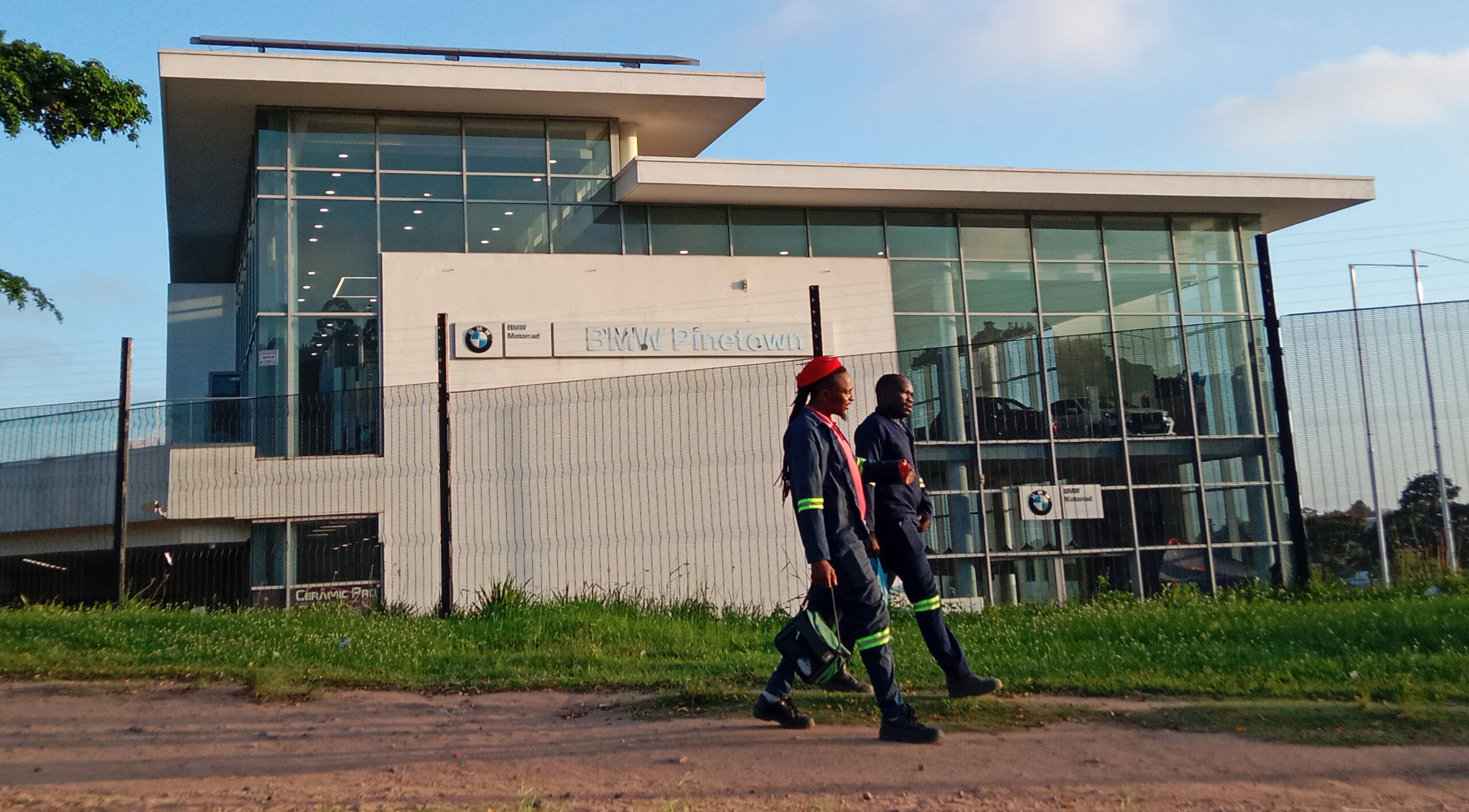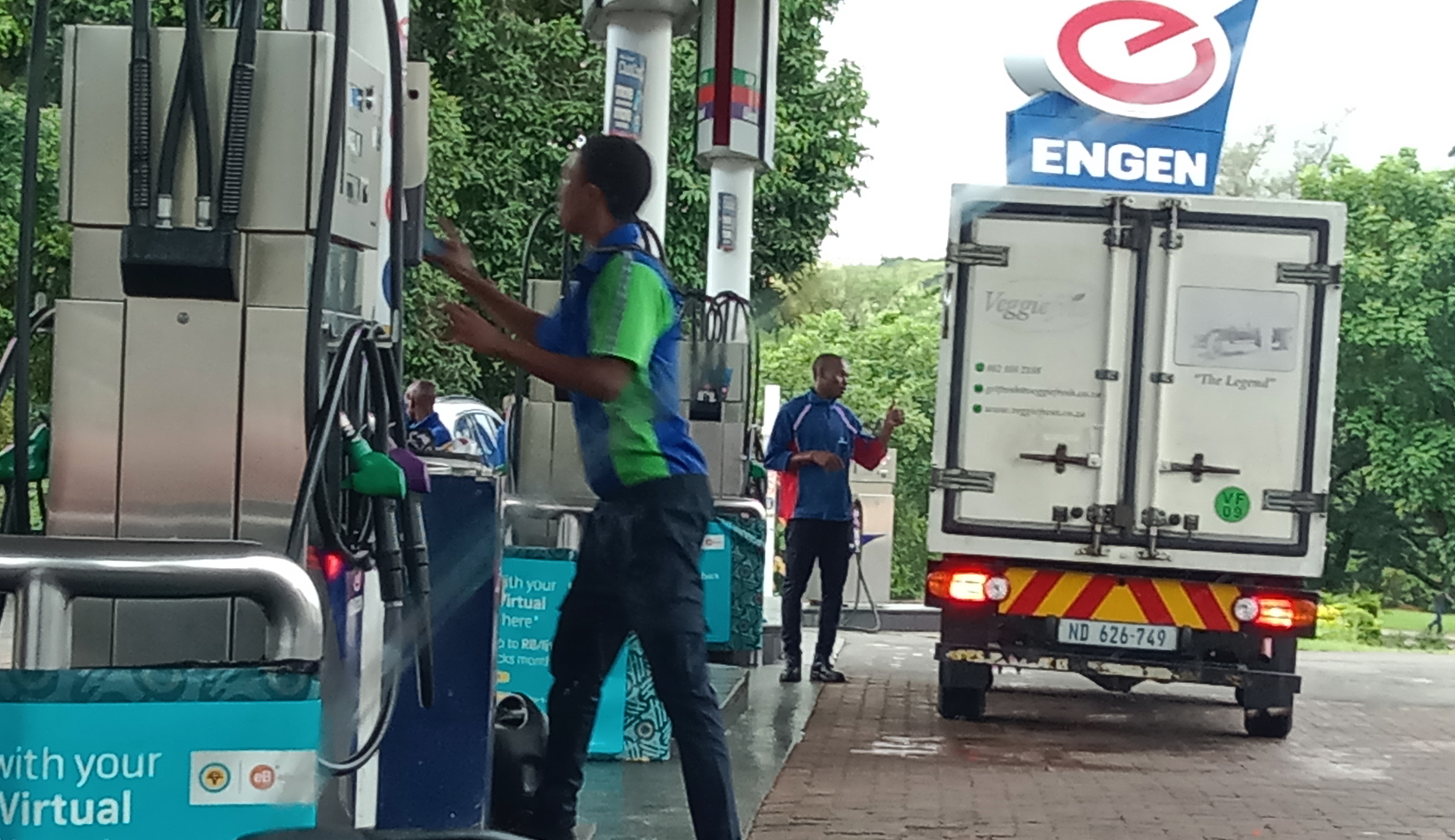There are growing fears of huge job losses in the auto industry as South Africa joins the rest of the world in the transition from petrol- and diesel-powered vehicles to new energy vehicles (NEVs). Infrastructure worth billions is being rolled out incrementally across the country.
In KwaZulu-Natal, Zero Carbon Charge, a South African company focused on building a national network of off-grid, renewable-energy electric vehicle (EV) charging stations, is in the final stages of plans to spend R9.4-billion to build what it calls KZN Network.
It will consist of 31 sites, 17 of which will be dedicated to charging electric passenger and light commercial vehicles. The other 14 will be swapping stations for truck batteries.
The company signed a memorandum of understanding with the KwaZulu-Natal government late in 2024.
Joubert Roux, the company’s chairperson, said: “Our electric passenger vehicle charging stations are awaiting approvals from municipalities who need to provide us with a land use approval and then a building plan approval… We aim to have all [charging] stations developed and in operation by mid-2026.
“On the truck sites, the size of land to develop is much larger – which requires a full environmental approval that we estimate will take 18 months, and the development of truck stations will take 36 months (including the time of applications).”
Roux added: “We are getting full support from the KZN provincial government with unblocking all red tape that we face – and we are very grateful.”
 Workers pass a Pinetown dealership which is one of the few that has working EV charging centres in KwaZulu-Natal. (Photo: Chris Makhaye)
Workers pass a Pinetown dealership which is one of the few that has working EV charging centres in KwaZulu-Natal. (Photo: Chris Makhaye)
Game changer
Musa Zondi, KZN’s MEC for economic development, tourism and environmental affairs, said the province was doing all it could to speed up the programme.
He said it would be an economic game changer for the province.
“The installation of Zero Carbon Charge EV charging stations will generate major socioeconomic benefits for the province, including thousands of jobs, skills development initiatives, as well as the promotion of green mobility that benefits both urban and rural communities.”
Read more: BMW producing plug-in electric cars locally flags need for SA to adapt to the EV transition
Junisen Pillay, a workshop manager at BMW Pinetown, said the dealership’s charging station opened recently. So far it is charging the company’s own vehicles, but only two customers regularly come to charge their batteries there.
“There are very few of these cars in South Africa at the moment, so there is not much demand for this service yet. But we expect this to change when more and more of these cars descend on our roads,” he said.
Threat to jobs
The switch from internal combustion engines to their NEV (or EV) counterparts could have devastating effects on some sectors.
Petrol attendants and other service station workers face the biggest threat, with thousands of jobs likely to be lost in the years to come. About 140,000 people are employed at about 6,000 petrol stations across South Africa, most working as pump attendants.
These workers seem to be in the dark about the coming seismic shift that could see them either losing their jobs or having to be retrained to take advantage of new opportunities.
Daily Maverick visited several service stations in Durban and Pinetown.
 KwaZulu-Natal economic development MEC Musa Zondi. (Photo: Darren Stewart / Gallo Images)
KwaZulu-Natal economic development MEC Musa Zondi. (Photo: Darren Stewart / Gallo Images)
Veli Ndlovu (41), who has been a petrol attendant in Berea, Durban, for the past 16 years, said he did not believe that the arrival of electric vehicles would threaten his livelihood. “I’ve heard about these cars. But this thing will take a long time to come to South Africa. By that time, we will be long dead. So, personally, I don’t see it as a threat, at least not yet,” he said.
In Northdene, west of Durban, a group of pump attendants said they had not been informed about new-energy vehicles. One of them, who asked not to be named, fearing he would get into trouble with his bosses, said: “I heard that it is China that is building these vehicles. I hear [US President Donald] Trump is stopping all of this, and petrol vehicles will be with us forever.”
Although workers may be in the dark about the coming changes, unions are concerned about a potential jobs bloodbath, especially at petrol stations.
There are only 350 publicly accessible EV charging stations in South Africa – many of them at dealerships – but the network is expanding rapidly. Many countries, including those that import vehicles made in South Africa, are trying to phase out petrol and diesel cars.
Mzamo Khoza, KZN regional secretary of the National Union of Metalworkers, said potential job losses were discussed at a recent automotive industry shop steward council meeting.
He said only about 27% of vehicles made in South Africa are for the domestic market. The rest are exported to other countries, especially in the EU, which is changing fast, forcing the local industry to adapt or die.
Read more: Green ambitions: SA targets EU market with clean aviation fuel and electric vehicle exports
“We are not opposed to innovative technology per se because things evolve all the time. Our main area of concern is how this transition is managed so that it does not lead to massive job losses throughout the automotive industry, especially those who work in the service station sector,” he said.
“For the other sectors it would be easier to change tack without losing many jobs, but the service station sector is facing a threat far greater than in the assembly plants, in the parts and components sectors.
 Zero Carbon Charge co-founder Joubert Roux. (Photo: Supplied)
Zero Carbon Charge co-founder Joubert Roux. (Photo: Supplied)
“As a union organising in these sectors, we are saying this transition must be handled with care. We are saying that workers must be thoroughly informed and reskilled.”
According to Stats SA, the South African automotive industry directly employs about 110,000 people in manufacturing, with the multiplier effect contributing to an estimated 320,000 to 500,000 jobs throughout the formal sector. These jobs, too, could be affected in one way or another by the shift.
For example, the EU, South Africa’s biggest trading partner, is set to ban sales of internal combustion engines by 2035.
Read more: End of the combustion era? Smart innovations are efficiently driving the future of transport
Read more: The lost Joule EVs will be back for us to admire — but not drive
In 2024, South African vehicle exports to the EU fell by 22.8% to 308,380, compared with the record 399,594 exported in 2023.
Mikel Mabasa, the chief executive of the National Association of Automobile Manufacturers, did not respond to a query from Daily Maverick. But the association issued a statement in February saying that although the transition would bring jobs and investment to South Africa, some sectors could suffer.
It said: “Driving a meaningful NEV transition in South Africa will require a careful balance between incentivising a sustained shift in domestic market demand to NEVs; establishing an appropriately aligned, renewable energy-based charging infrastructure; and supporting a shift in South African vehicle production away from [internal combustion engine] vehicles to a mix of hybrid electric vehicles, plug-in hybrid electric vehicles and battery electric vehicles.” DM
This story first appeared in our weekly Daily Maverick 168 newspaper, which is available countrywide for R35.





 CHARGE co-founder Joubert Roux. Image: Supplied
CHARGE co-founder Joubert Roux. Image: Supplied